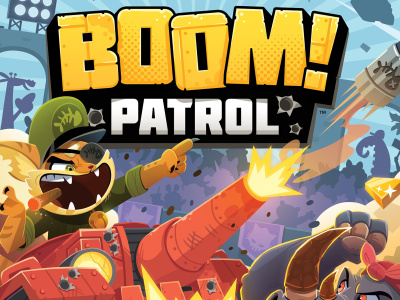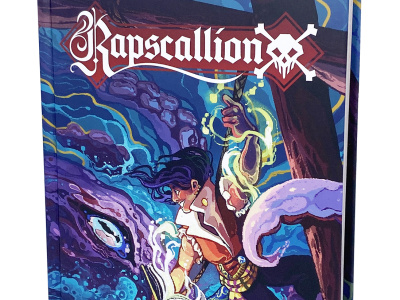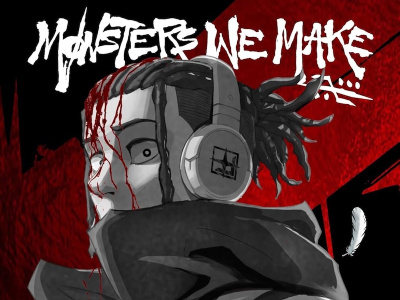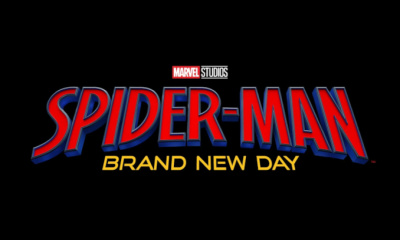 We recently had an opportunity to interview Marvel Senior Vice President-Sales David Gabriel about Marvel’s 2011 sales and what to look for in 2012. In Part 3, we talk about event fatigue, Marvel’s graphic novel strategy, and digital. In Part 1, we talk about Marvel’s sales in 2011 and the company’s pricing strategy and its impact (or lack there-of) on sales. And in Part 2, we talk about Marvel’s 2012 plans, and about Marvel’s strategies for gaining new readers.
We recently had an opportunity to interview Marvel Senior Vice President-Sales David Gabriel about Marvel’s 2011 sales and what to look for in 2012. In Part 3, we talk about event fatigue, Marvel’s graphic novel strategy, and digital. In Part 1, we talk about Marvel’s sales in 2011 and the company’s pricing strategy and its impact (or lack there-of) on sales. And in Part 2, we talk about Marvel’s 2012 plans, and about Marvel’s strategies for gaining new readers. Retailers tell us there's event fatigue out there. Are you seeing that? And what's Marvel's current thinking regarding editorial events-is there a trend in terms of the number of Marvel books consumers have to buy to follow an event?
All I can say is that retailers tell us to bring on big events and plan them wisely; and by the sales of the past year events are still holding. We’re just focusing ours differently for 2012. Avengers vs X-Men has one book to buy, the main book; that’s the only one consumers need to purchase to enjoy the story. If they want to read other aspects of the story within other core titles they can test those books as well. And for those fans who want more action, fighting, and a different type of book from anything we’ve published previously they can also pick up the VS title. But in all seriousness consumers only need the one core book to follow the event.
Marvel tends to let its book format collections go out of print more quickly than some of its competitors, treating them as more temporary products than as long term backlist. Can you describe the rationale for that strategy?
Let’s clarify that statement. Top selling evergreen books are not allowed to go out of print. Folks continually want to dredge up the past where nothing was thought of as evergreen. Our two top selling collected editions for 2011, as noted in the market share ranks, were Civil War and Wolverine Old Man Logan. We keep those books in print because with the demand we’d be fools not to do so.
Books that we don’t see as having a shelf life of more than a year and a half, are printed with that in mind. We put out more classic material than any publisher. We’ve had a strong, continuing Masterworks program for over 7 years now… and we’re approaching our 200th edition. Essentials are no longer considered perennials in this market, and we’ve taken our measure of those from retailers and consumers who do not order them as such, and so they are not all kept in stock as evergreen titles. Over the past eight years we’ve published nearly 100 volumes of Premiere Classic books that put some of our most popular stories from the past decades into collected editions. No other publisher has supported the amount of material that we have. There have been times when a book has been allowed to go out of press, say Secret Wars, in order for us to create a special Omnibus Edition which also allows us to gather new extras, redo files that need fixing and get the best possible re-creation available for all the pages. This process in turn allows us to then put out a better version of the paperback and keep that one in stock. We’ve talked about this process before. It would be ludicrous on many books for us to go back to press on an inferior quality book, when we know if we wait a few months we’ll be able to put forth a superior edition.
We clearly stated when we first started putting our ongoing series into smaller Premiere Hardcovers about five years ago that we did not plan for those to stay in print, nor would they be reprinted; they were an edition that went to press a little closer to the timing of the last comic of a series and they were priced slightly higher than a paperback edition in order to assist those retailers who were still enjoying sales of the comics. These volumes keep the lower priced paperback editions off the shelves for a little while longer, allowing a longer selling time for the comics.
There are a lot of factors at play here, one of which is that you just can’t take into account the needs of just one retailer, but instead you need to take a look at the overall big picture. Do we need to get Infinity War back to press when we need to make sure Civil War is still stocked? We need to make the calls on those books that are going to make both us and our retailer and book buyer partners the most money. Sometimes there will be that one book that has gone out of print for a million reasons and rather than anyone find out why they just jump to the wrong conclusions; or to make matters worse, when the rationale behind a book being out of stock is explained some folks just don’t want to hear it or accept the reasons, so they’ll start a massive campaign and create false information. Whew… hope that explains things a bit without inciting riots.
What's your response to retailers who say there's a lot of demand for Marvel's archive material that they can't satisfy because of your book strategy?
See above. I have never heard that a retailer can’t find archival material.
Marvel has bundled digital versions with a number of its comics and graphic novels. Some would argue that this could divert consumers of print content to digital. Your response?
As I mentioned above, we need a new way to grab non fans and make them readers--because more readers benefits everyone. We can’t ignore that digital revolution of the last decade and we should be working together, publishers and retailers, to make it benefit us all. We’ve been making every effort possible, including holding retailer roundtable discussions regarding our digital plans to get their feedback and make sure we’re working to keep print consumers active. I can just as easily say that every digital comic that we sell points to the print version as well as assists in locating comic shops to purchase the print comics. The exact same arguments were in play 12 years or so ago when folks were arguing that all publishers were pushing consumers from single issue comics to collected editions. Twelve years later we see where that argument is.
In the other direction, Marvel recently did a couponing program for print products to its digital customers. How was the response, both at the consumer level and from retailers?
So far so good. The retailers involved appreciated the idea; other industry professionals applauded this as one of the best steps made to use digital sales and formats to drive sales in comic shops. Sales of digital comics were up the day of the offer, of the coupons we sent out already, 30% have been downloaded and of that amount another 30% have been redeemed. Anyone with expertise in this area will tell you that’s a fairly high redemption and conversion rate.
Do you plan to do that again?
We do plan to do it again, as well as to continue offering the extra added value of the free digital download over more titles, and we’re now testing doing this in collected editions. I’m also happy to drop here that we’ll soon be announcing a major new program in the free digital download content--something no one’s done yet; but you’ll have to wait a bit to hear more on that.
Click here to go back to Part 1.







